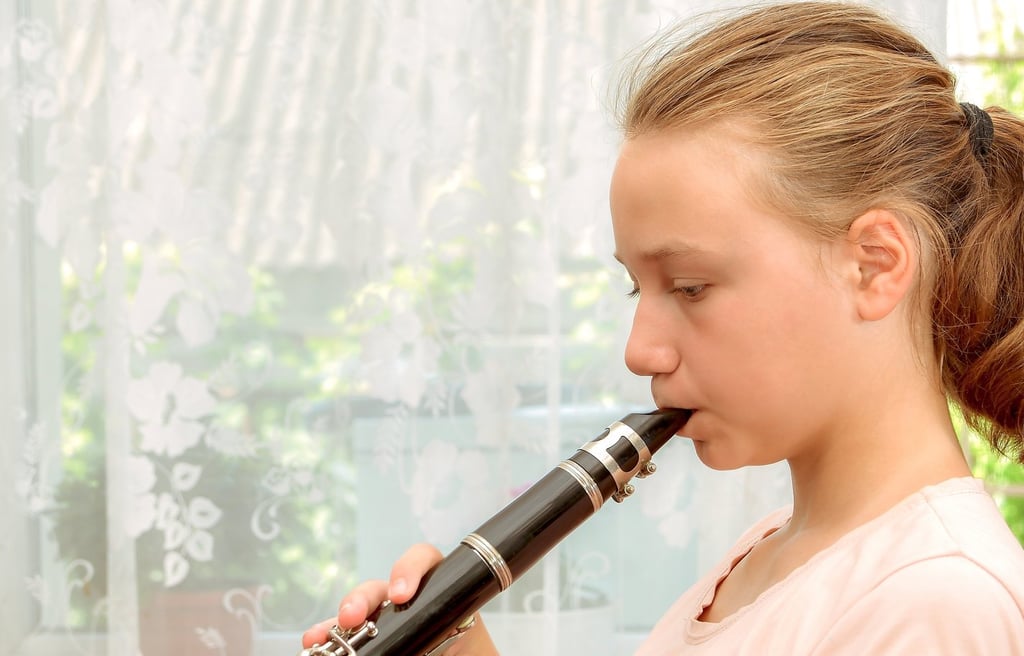The Benefits of a Child Taking Music in School
Music education in schools is more than just learning how to play an instrument or sing in tune—it’s a powerful tool that fosters personal growth, cognitive development, and social skills. For children, being involved in music programs can have profound and lasting impacts that extend far beyond the classroom. Here’s a closer look at how music can benefit a child and why it’s worth encouraging them to embrace this creative path.ption.
Jennifer Lemoine
1/17/20253 min read


Music education in schools is more than just learning how to play an instrument or sing in tune—it’s a powerful tool that fosters personal growth, cognitive development, and social skills. For children, being involved in music programs can have profound and lasting impacts that extend far beyond the classroom. Here’s a closer look at how music can benefit a child and why it’s worth encouraging them to embrace this creative path.
Research has consistently shown that music education enhances brain function. Learning to read music, memorize pieces, and master an instrument requires coordination between different areas of the brain. This improves memory, spatial reasoning, and problem-solving skills. Studies have also linked music education to higher performance in math, reading, and language skills, making it a valuable complement to academic learning.
Mastering an instrument or learning to sing well doesn’t happen overnight. It requires regular practice, patience, and a commitment to improvement. These are life skills that extend into other areas of a child’s life, such as completing homework, preparing for tests, or working toward personal goals. Through music, children learn the importance of persistence and the rewards that come with it.
Being part of a school band, orchestra, or choir teaches teamwork and communication. Children learn to listen to one another, blend their sounds, and work collaboratively to create something greater than the sum of its parts. These experiences foster camaraderie and help children develop empathy and respect for others.
There’s nothing quite like the sense of accomplishment that comes from performing in front of an audience or mastering a difficult piece of music. These moments help build a child’s self-esteem and confidence. As they progress and overcome challenges, they’ll develop a belief in their own abilities that can carry over into other areas of their lives.
Music offers a unique way for children to express themselves. Whether they’re playing a soulful melody on the violin or pounding out rhythms on a drum, music can help them process their emotions and communicate feelings that might be difficult to put into words. This emotional outlet can be especially valuable during adolescence, a time when children are navigating complex emotions.
Engaging with music stimulates imagination and innovation. From improvising melodies to composing original pieces, music education encourages children to think outside the box. This creativity can spill over into other areas of their lives, fostering original thinking and problem-solving skills.
Music is a gateway to understanding and appreciating different cultures. Through learning about various musical traditions and styles, children gain a broader perspective of the world. This cultural exposure fosters inclusivity, respect, and a sense of global connection.
Participating in music—whether through playing an instrument or singing—has been shown to lower stress and anxiety levels. For children dealing with academic pressures or personal challenges, music can provide a calming escape and a way to refocus their energy in a positive direction.
Playing an instrument requires coordination between the hands, eyes, and sometimes even the feet. These physical demands can improve motor skills and hand-eye coordination. For younger children, this can support overall physical development and dexterity.
Finally, participating in school music programs often creates memories that last a lifetime. From friendships forged during rehearsals to the thrill of performing on stage, these experiences become cherished moments that children carry with them long after they’ve left school.
Music education is a cornerstone of a well-rounded education, offering countless benefits that support a child’s academic, emotional, and social development. Encouraging your child to participate in their school’s music program isn’t just about fostering a love for music—it’s about equipping them with the tools they need to thrive in life. Whether they dream of becoming a professional musician or simply enjoy the creative outlet, the skills and experiences they gain through music will enrich their lives in countless ways.
